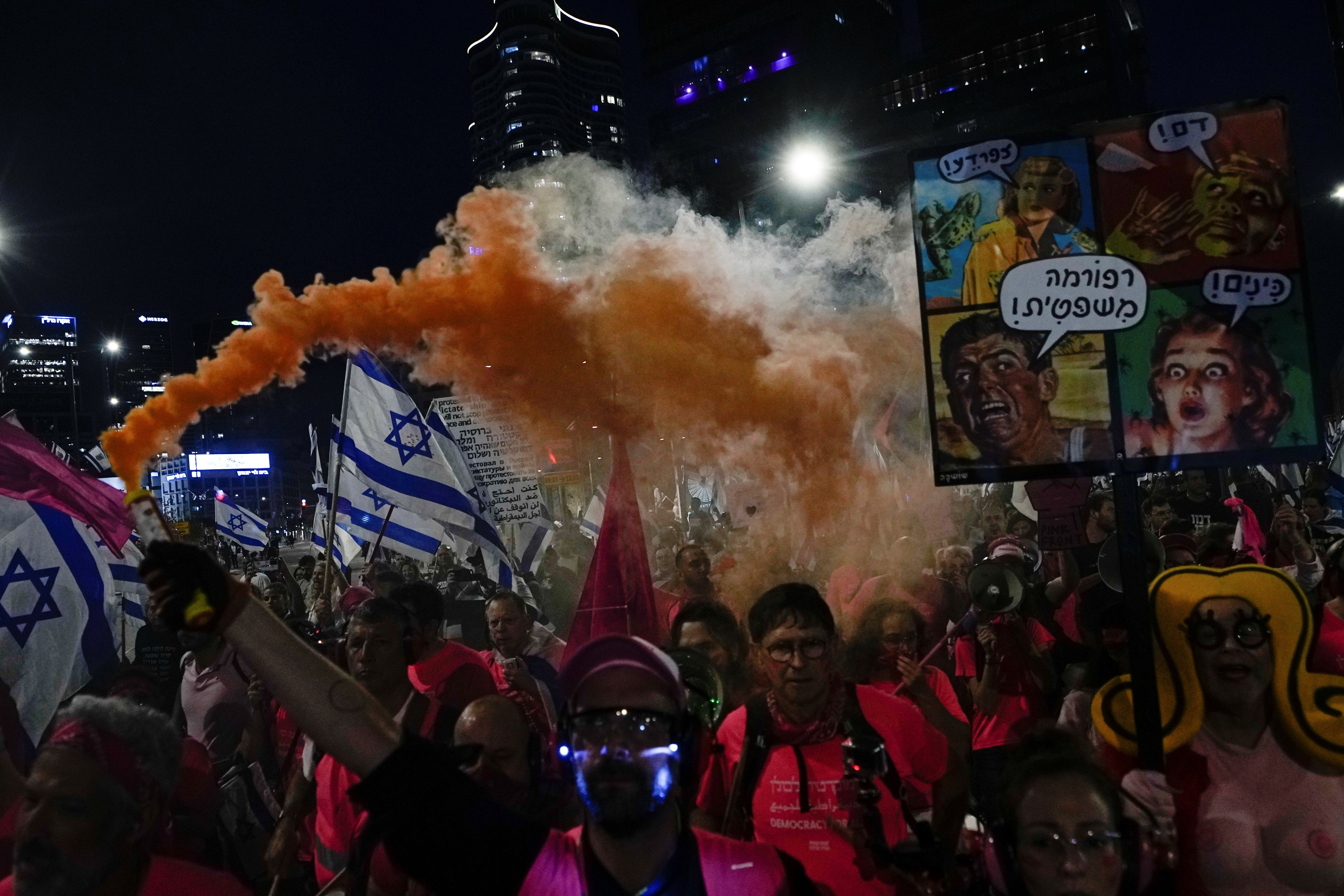'Israel' juggles internal divisions and external threats
The Israeli military apparatus struggles to maintain security amidst coordinated resistance activities from Gaza and Lebanon amidst civil disorder and conscription evasions.
-

Israelis protest against plans by Prime Minister Benjamin Netanyahu's government to overhaul the judicial system, in "Tel Aviv", occupied Palestine, Saturday, April 8, 2023 (AP )
Demonstrations in "Tel Aviv" have proceeded as planned but agreed to cancel a rally that was supposed to follow at the police's request due to security concerns, The Times of Israel reported
Israeli police have reportedly said that it was necessary to keep the roads clear in light of the current "terror wave" referring to the salvos of rockets fired at settlements from Gaza and Lebanon, and the discreet individual operations from within the settlements.
Read more: Rockets fired from south Lebanon toward Al-Jalil: Israeli media
Protest organizers said that they were "fully coordinating" with police and that while the rally was canceled they will carry on with the planned protest.
“The government of Israel is failing in every area,” they said. “Instead of scrapping the [judicial overhaul] legislation and focusing on security, its senior ministers are telling the public that they will continue with their efforts to turn Israel into a dictatorship once the Knesset recess ends [at the end of the month].”
They added that the scheduled protests for Sunday, which will include sporting and cultural events, will take place as planned: "Terrorism must not be allowed to win".
Read more: IOF on high alert after bombing sites in Gaza, Resistance responds
On his part, Israeli Prime Minister Benjamin Netanyahu reportedly told his security cabinet he was trying to avoid escalating the conflicts on several fronts while the government was hobbled by widespread domestic opposition.
The Israeli military apparatus struggles to maintain security amidst coordinated resistance activities from Gaza and Lebanon amidst civil disorder and conscription evasions in the military.
Earlier this week, the Israeli occupation carried out air strikes at dawn targeting a number of Palestinian Resistance sites.
Israeli occupation military was put on high alert on all fronts and borders, declaring it "a sensitive and dangerous day" and calling on all settlers of the Gaza envelope settlements to stay in shelters.
National Resistance Brigades in Gaza and Al-Nasser Salah Al-Din Brigades announced the bombing of the occupied city of Asqalan with a missile.
The next day, Israeli media reported that several rockets were fired from southern Lebanon towards settlements in the north of occupied Palestine.
The Times of Israel highlighted that the attack "may mark the largest number of rockets fired from Lebanon" since the July 2006 war.
The Israeli occupation military spokesperson claimed that the Israeli military attacked at April 7 dawn Hamas infrastructure and sites in southern Lebanon, as warplanes bombed open areas, fruit groves, and agricultural infrastructure south of the Lebanese city of Tyre.
"The Israeli security establishment cannot confirm whether Hezbollah knew or turned a blind eye to the firing of rockets from Lebanon," Israeli media reported.

 3 Min Read
3 Min Read










